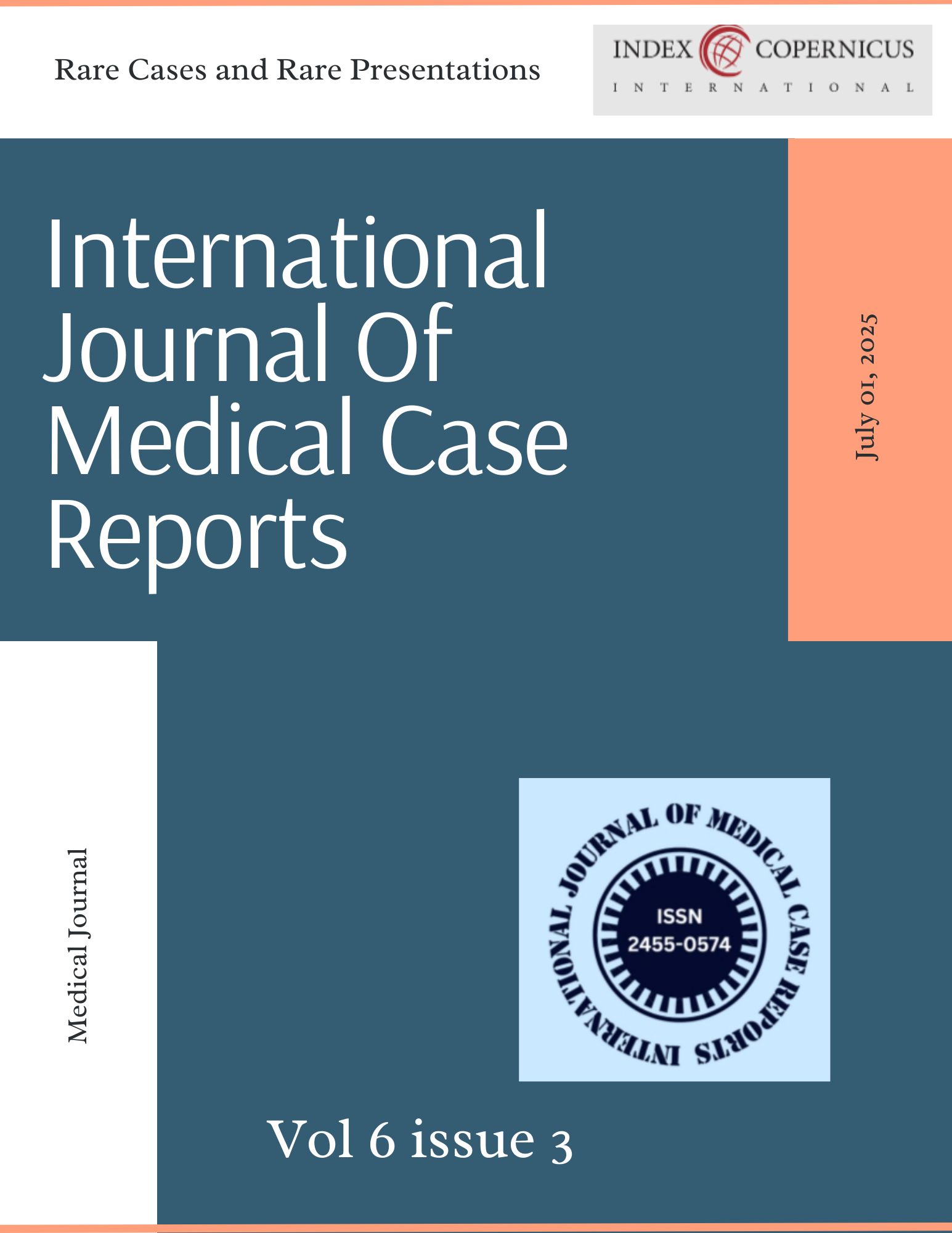Successful Peripartum Management of Placenta Percreta with Bladder Invasion Using Prophylactic Internal Iliac Artery Balloon Occlusion and obstetric hysterectomy: A Rare Case Report.
Main Article Content
Abstract
Out of the placenta accreta spectrum (PAS), Placenta percreta is the most invasive form and it causes significant risk of haemorrhage. Prophylactic bilateral internal iliac artery balloon occlusion (PBO-IIA) has been proposed to reduce haemorrhage during surgical procedure, though its effectiveness remains questionable.
We are reporting a case of 29-year-old multigravida (G3 P2 L2) pregnant women at 30 weeks of gestation with prior 2 caesarean sections who was referred to us from district hospital with antepartum haemorrhage first episode . Imaging investigations revealed placenta previa with MRI showing features of placenta accreta spectrum with placenta percreta with possibility of bladder and psoas muscle invasion. Patient was haemodynamically stable . patient was given corticosteroids for lung maturity , magnesium sulphate for neuroprotection, and tranexamic acid to control bleeding . The case was discussed with intervention radiologist and planned for elective cesarean section with prophylactic internal iliac artery ballon placement as and when required.
On day 4 of admission , patient had sudden episode of bout of bleeding of around 400 cc blood transfusion started ,, and simultaneously intervention radiologist informed and patient was shifted for mri based PBO-IIA placement . Procedure done and then patient shifted for emergency cesarean, pt was haemodynamically stable .
Prophylactic bilateral internal iliac artery balloon occlusion i.e., PBO-IIA was Performed through femoral access before surgical intervention. The balloon of the armada catheter was not inflated till the delivery of baby. The placenta was seen completely invading the myometrium and coming onto the surface and uterovesical plane and therefore the baby was delivered by classical scar and then the decision for hysterectomy taken , Balloons were intermittently inflated and deflated with 10 mins on and 1 min off by radiologist which made the procedure easy and the bladder could be dissected away from uterus with average blood loss and devascularisation helped in delineating the planes clearly. . The patient recovered without any complications.
Intraoperatively pt was throughout haemodynamically stable with average blood loss of 1400 cc .and received only 2 units of packed red cells and no other blood products.
This case supports the selective use of PBO-IIA in placenta percreta with bladder invasion to assist in surgical treatment of condition with minimal blood loss and less time of surgery .
